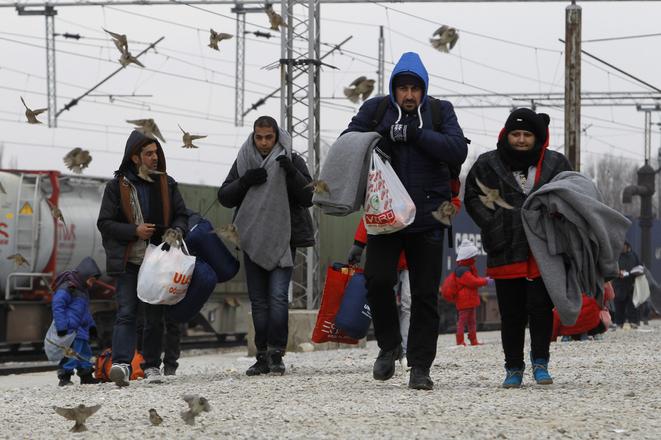Young people in Slovakia are inclined toward radical views more than towards supporting diversity, despite a society-wide emphasis of threats of extremism, a recent survey found. The survey, carried out by the Institute for Public Affairs (IVO) in July and September this year, found that younger people between 18 and 39 years of age are inclined toward extremist views, the Sme daily wrote on November 28.
IVO analyst and the study's author Marian Velšic explains this with the fact that the young have always been close to radical opinions.
The poll showed that 81 percent of Slovaks aged between 18 and 39 would object to having an extremist as a neighbour and at the same time they object to a Roma family (80 percent) or a Muslim family (71 percent) in their neighbourhood. More than half of young people (54 percent) in the country would have a problem with people living close who are migrants from economically weaker countries, and about two-fifths would object to various sexual minorities and people of Asian or African background.
The research paper Young People and the Risks of Extremism, which focused on the rise of radicalism and extremism in Slovakia, stated that the younger generation predominantly leans towards conservative political streams, the SITA newswire wrote.
What the polls revealed about the views of Slovak youths
Two-thirds of respondents (66 percent) are ready to protect national sovereignty, nearly three-fifths (57 percent) want to protect Christianity against Islam, and about half of Slovaks aged between 18 and 39 are inclined toward patriotism (54 percent) and pan-Slavic togetherness (48 percent).
Support for liberal democracy, the deepening of European integration, multiculturalism, and diversity comes close to 30 to 40 percent of Slovaks.
IVO considers it positive that as many as 65 percent of young people reject an authoritarian regime as a political direction, SITA reported.
“In the view of the expanding extremism in Slovakia, it is particularly worrying to find that the protection of the 'white race' is an ideology close to 45 percent of young people,” Velšic said, adding that another manifested factor is low tolerance to otherness.
On the other hand, the young have always been inclined toward radical views, Velšic said for Sme, adding that this is connected with age and lack of experience, and usually, this trend becomes weaker with growing experience and a more specific shaping of views.



 Migrants are perceived as a threat, illutsrative stock photo (source: AP/SITA)
Migrants are perceived as a threat, illutsrative stock photo (source: AP/SITA)